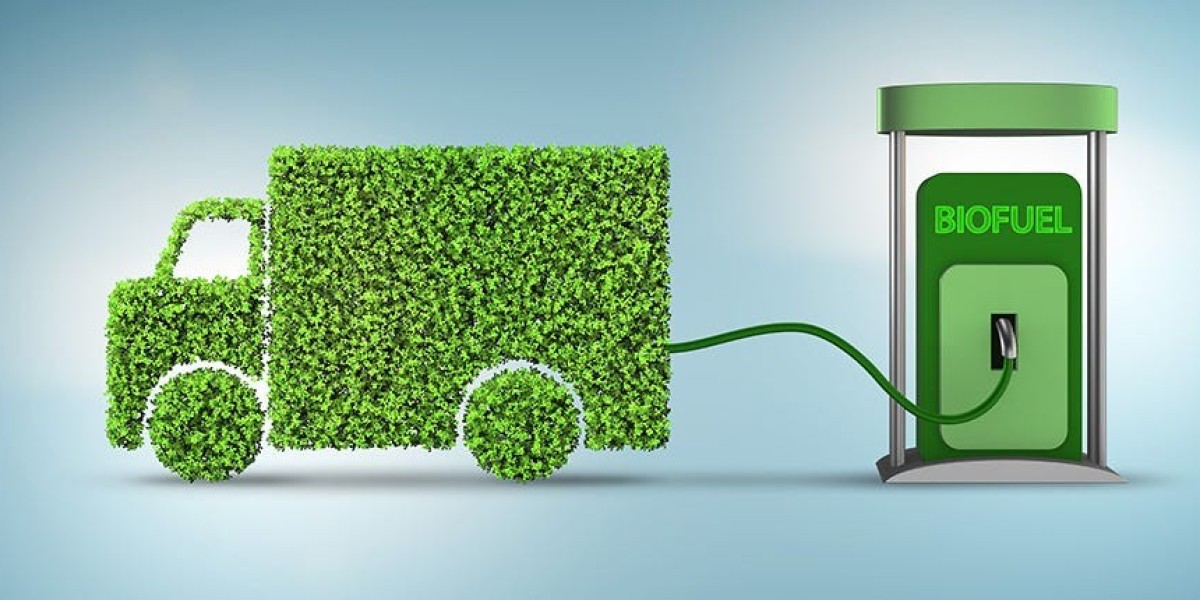The Biofuel Testing Services Market is witnessing significant growth as industries, governments, and consumers transition toward renewable energy sources to reduce greenhouse gas emissions and dependence on fossil fuels. Biofuel testing ensures that alternative fuels meet regulatory standards, performance requirements, and sustainability benchmarks, making it an essential component of the renewable energy ecosystem. As the adoption of biodiesel, ethanol, biogas, and advanced biofuels accelerates across transportation, aviation, and industrial applications, demand for reliable testing services continues to expand globally.
Growing Focus on Sustainability and Emission Reduction
One of the most prominent trends shaping the market is the global emphasis on sustainability. Governments across the world are implementing ambitious climate goals, such as achieving net-zero emissions by 2050. Biofuels, as renewable and low-carbon alternatives, are integral to meeting these objectives. Testing services play a critical role in validating the carbon footprint of fuels, analyzing feedstock sustainability, and ensuring compliance with renewable energy mandates. As corporations adopt Environmental, Social, and Governance (ESG) frameworks, rigorous testing is increasingly viewed as a strategic tool for sustainability reporting and certification.
Rising Stringency of Regulatory Standards
The tightening of environmental regulations is another key driver of the biofuel testing landscape. Agencies such as the U.S. Environmental Protection Agency (EPA), European Committee for Standardization (CEN), and ASTM International mandate strict quality and performance criteria for biofuels. Compliance with standards like EN 14214 for biodiesel or ASTM D6751 ensures engine compatibility, safety, and efficiency. This trend is boosting demand for independent, accredited testing laboratories that can provide certification and validation services. The aviation sector, under the CORSIA (Carbon Offsetting and Reduction Scheme for International Aviation) framework, further underscores the importance of standardized biofuel quality testing.
Technological Advancements in Testing Methods
Rapid technological innovations are transforming the biofuel testing market. Traditional methods such as chromatography and spectroscopy are being complemented with advanced analytical tools, automation, and real-time monitoring systems. Artificial intelligence (AI)-driven data analytics is increasingly applied to improve the precision and speed of testing processes. Portable testing devices are also gaining traction, allowing on-site quality verification, particularly in remote industrial or agricultural settings. These advancements not only enhance accuracy but also lower operational costs, making biofuel testing more accessible to small and medium-scale producers.
Expanding Applications Beyond Transportation
While transportation remains the largest consumer of biofuels, new applications are emerging across other industries. Aviation is a fast-growing sector where sustainable aviation fuels (SAFs) are gaining prominence, requiring specialized testing for energy density, freezing point, and emission characteristics. Marine fuels are another area where biofuels are being tested to comply with the International Maritime Organization’s (IMO) sulfur cap regulations. Additionally, biofuels are being deployed in power generation and heating systems, creating new avenues for testing services. The diversification of end-use industries is significantly broadening the market’s scope.
Globalization of Biofuel Supply Chains
As the biofuel industry becomes more globalized, the supply chain is becoming increasingly complex. Feedstocks such as corn, sugarcane, palm oil, and algae are sourced across continents, making quality control and traceability critical. International trade in biofuels requires certification of origin, sustainability assessments, and adherence to diverse regulatory frameworks across regions. Testing services are vital in providing transparent and standardized quality checks that facilitate cross-border trade and build confidence among stakeholders.
Integration with Circular Economy Models
Another emerging trend is the integration of biofuels into broader circular economy initiatives. Many companies are exploring the use of waste oils, agricultural residues, and municipal solid waste as feedstocks. These alternative inputs require stringent testing to ensure fuel quality, as variability in raw materials can affect fuel performance. Testing services thus enable the commercialization of second-generation and advanced biofuels, aligning with global efforts to minimize waste and promote resource efficiency.
Growing Role of Digitalization and Remote Testing
Digitalization is reshaping the biofuel testing services market by enabling remote data collection, online reporting, and cloud-based analysis. Clients increasingly demand real-time insights into fuel quality to streamline operations and reduce downtime. Laboratory networks are adopting blockchain-based certification systems to enhance transparency in the biofuel supply chain. The move toward digital platforms is improving customer convenience and operational efficiency while ensuring regulatory compliance.
Competitive Landscape and Market Expansion
The competitive landscape of biofuel testing services is evolving with collaborations between testing laboratories, fuel producers, and regulatory agencies. Strategic partnerships are being forged to expand testing capabilities and develop new analytical methodologies. Major players are also investing in expanding laboratory infrastructure in emerging markets such as Asia-Pacific and Latin America, where biofuel adoption is accelerating due to rising energy demand and supportive policies. The market’s growth trajectory reflects a balance between mature regions with stringent regulations and developing regions with vast untapped potential.
Conclusion
The Biofuel Testing Services Market is poised for strong growth as renewable fuels take center stage in the global energy transition. Key trends include stricter regulations, technological advancements in testing, diversification of applications, and the integration of digital solutions. As the push for sustainability and decarbonization intensifies, testing services will remain a cornerstone in ensuring biofuel quality, safety, and compliance. For stakeholders across energy, transportation, and industrial sectors, investing in advanced biofuel testing solutions represents not only regulatory necessity but also a strategic advantage in the journey toward a greener future.






